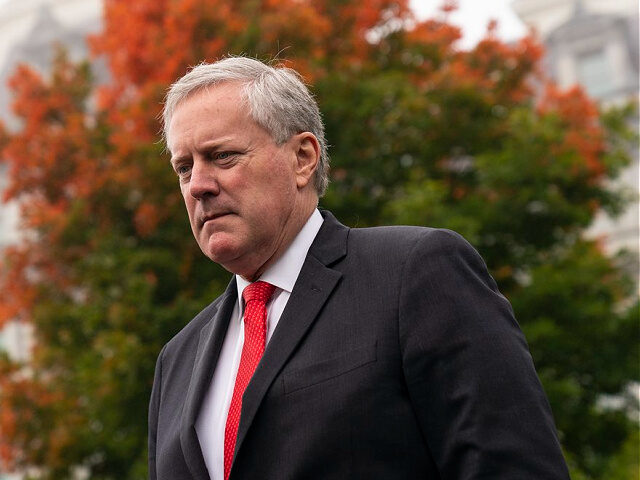A federal appeals court Monday denied Mark Meadows’ appeal to move his election interference case in Georgia to the federal court, a decision with significant implications for Donald Trump’s own Fulton County court fight.
The former chief of staff to Trump sought to move the Fulton County, Georgia, indictment against him to federal court, citing a federal law known as a removal statute that allows an “officer of the United States” facing charges in state court to transfer the proceedings to federal court if the alleged behavior falls under their governmental duties.
In an opinion written by Judge Bill Pryor — a conservative former Alabama Attorney General and George W. Bush appointee — the three-judge panel of the U.S. Court of Appeals for the Eleventh Circuit ruled that the law only applied to current government officials. That ruling, while not surprising, is a blow not just to Meadows but Trump, former Department of Justice official Jeffrey Clark, and other defendants separately seeking to move their charges to federal court.
The panel’s ruling that the law does not apply to former officials was driven by circuit precedent, which a three-judge panel has no power to overrule in this instance.
But perhaps more significantly, all three judges concurred that they did not regard Meadows’ actions as relating to his official duties.
“Meadows cannot point to any authority for influencing state officials with allegations of election fraud,” Pryor wrote. “At bottom, whatever the chief of staff’s role with respect to state election administration, that role does not include altering valid election results in favor of a particular candidate.”
Trump and other defendants face electioneering charges prosecuted by Fulton County District Attorney Dani Willis, a Democrat. They are being charged under Georgia’s Racketeer Influenced and Corrupt Organizations Act (RICO) statute for allegedly soliciting an official to violate his oath of office.
In Meadows’ case, Willis points to his involvement in setting up calls between Trump and various state legislators as evidence of his alleged violation of state law.
In seeking to move the indictment to federal court, Meadows’ attorneys argued he had the right to remove his case to federal court because the “conduct giving rise to the charges in the indictment all occurred during his tenure and as part of his service as Chief of Staff.”
The panel disagreed.
Meadows had hoped for a better ideological panel composition, which included two Democrat appointees and one Republican appointee in an appeals court considered fairly conservative. But the unanimous decision, including from the circuits’ chief judge, Pryor, threw cold water on hopes Meadows harbored for winning his appeal.
The judges seemed sympathetic that the law applied only to current officials, yet indicated that their hands were tied.
Like Meadows, Trump’s argument that his actions and conduct regarding the 2020 elections were related to his official duties is a prime component of his own defense.
Meadows can petition to the Supreme Court to review, and he is likely to wait until closer to the end of the permitted 90 days to file the cert petition. That would place the argument before the court in the fall.
The case is Georgia v. Meadows, No. 23-12958, in the U.S. Court of Appeals for the Eleventh Circuit.
Bradley Jaye is Capitol Hill Correspondent for Breitbart News. Follow him on X/Twitter at @BradleyAJaye.

COMMENTS
Please let us know if you're having issues with commenting.